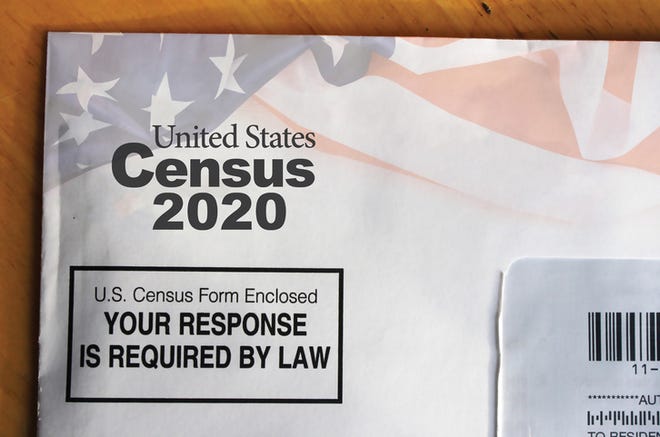Census 2020: Asheville still must prepare for national head count

ASHEVILLE - By general consensus, April Fool's Day was canceled in light of fallout from the novel coronavirus. But it's still a holiday — April 1 was Census Day.
The census is your RSVP to the next decade. It’s how the government gets a head count for the party — how many plates to make, how many seats to set out, and how to divvy up $675 billion in federal funding over 10 years.
More:Asheville, WNC could lose millions in funding if we flub the 2020 Census
Key for federal disaster relief
Federal, state and local governments all lean heavily on census data when disasters strike — from how many people need to be evacuated from a certain area during a storm to where to place distribution points for supplies and food.
Census data also decides how millions of dollars in federal funding for emergency response services are allocated each year.
"Statistics from the 2020 Census will provide baseline numbers not only for funding of federal disaster relief, but also preparation, rescue coordination and even locations for new fire stations," the Census Bureau website states.
More:Census or scam? Here are 5 ways to tell the difference
'Money and power'
According to Bob Coats, a demographics and economics analyst for the state and Gov. Roy Cooper's census liaison, the census dictates two things: "money and power."
Several forms of federal funding (among them schools and roads) are based on census population data. According to a George Washington University study, the census ultimately allocates $1,623 in federal funding per person, per year for a decade.
Undercount by 900 people — just 1% of Asheville's 2010 population — and that's $14.7 million down the drain.
"That's not new dollars," Coats added. "That's taxes you've already paid. In order to bring those dollars home," you have to be counted.
The census also decides each state's share of congressional seats, Electoral College votes and local-level district lines. North Carolina is poised to gain at least one seat in the House of Representatives, Coats said — "two if we do a really good job." And as a key swing state, even subtle shifts in N.C. districts could have an outsized impact on national politics.
More:North Carolina primary results: See exact numbers from Buncombe County, state
How to complete the census
For the first time, you'll be able to complete the census by phone or online as well as via snail mail — and in 13 languages. Most households should have received invitations in the mail in mid-March.
- Online: visit my2020census.gov
- By phone: call 844-330-2020 for English, 844-468-2020 for Spanish between 7 a.m.-2 a.m. Eastern Time. (Phone lines for other languages are listed at 2020census.gov.)
- By mail: fill out the paper questionnaire sent to your home. Use black or blue ink (not pencil) and return in the envelope provided
The 2020 census will ask only basic demographic questions and whether you own or rent your home.
Base all your answers on your household's status on April 1, Census Day. If your kid turns 8 on April 3, she's 7 on the census. If a household member dies at 12:01 a.m. April 2, mark them as a household member on the census.
Take special care to include toddlers and infants — the Census Bureau says very young children are one of the most under-reported populations in the country.
No citizenship question
Despite early announcements there would be a citizenship question on the 2020 Census, the Supreme Court blocked the addition on June 27 and the Trump administration gave up the effort on July 11.
Secure and confidential
Personally identifying information — like your address, and the names and ages of your children — is kept confidential for 72 years. All census employees swear a lifetime oath to protect respondent data, on penalty of a felony charge that carries up to five years' imprisonment and a $250,000 fine.
The Census Bureau is required by law to report the results of the census to the president by Jan. 1 of the following year. But that data is aggregate-only, with any personally identifying information stripped away.
"We don't work with people, we work with numbers," census partnership specialist Maria Quintero said.

Elizabeth Anne Brown is the trending news reporter for the Citizen Times. Reach her at eabrown@citizentimes.com, or follow her on Twitter @eabrown18.
Keep local journalism possible with a subscription to the Citizen Times.